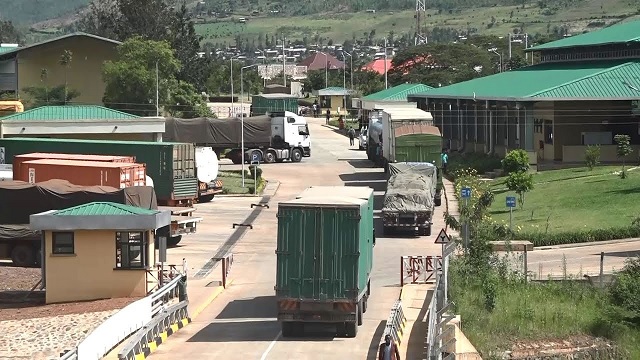
Kampala, Uganda | THE INDEPENDENT | The Uganda Revenue Authority (URA) has registered an increase in revenue collection at Katuna following the reopening of the Uganda-Rwanda border.
The border reopened on February 31, after three years of closure. Rwandan President Paul Kagame accused Ugandan authorities of spying on Rwanda, abducting Rwandan citizens and locking them up in non-designated areas, as well as hosting and facilitating dissidents who have declared war on the Kigali administration.
Rwanda then issued a travel advisory to its nationals against traveling to Uganda, saying their safety was not guaranteed. During the time of its closure, businesses on two sides of the border suffocated.
It also led to an increase in smuggling among Ugandan and Rwandan locals. As a result, about five people both Rwandan and Ugandan nationals were shot dead or injured and others were arrested by Rwandan authorities.
Gordon Mutungi, URA Customs in-Charge of the Katuna border says that each month, 470 million Shillings revenue is collected, which is above the target of 400 million Shillings. Mutungi says that on daily basis, an average of 160 cargo trucks, 20 passenger buses, and 42 small vehicles enter or exit the border.
Mutungi attributes the increase in revenue to the installation of electronic scanning services at the border which has greatly reduced the smuggling of goods, effective sensitization of traders on the dangers of smuggling, and cooperation between URA and security authorities in the district.
Abel Kagumire, the Commissioner of Customs at URA says that goods worth 84.7 Billion Shillings have crossed Katuna border since it was reopened. Kagumire says that some of the goods cross beyond Rwanda to Burundi and the Democratic Republic of Congo. He explains that among the exports from Uganda via the border include: sugar, iron, and sleet bars, cosmetics, fish, plastics, and garments.
Kagumire says that Rwanda mostly exports scrap from iron and steel waste, aluminum, packaging materials and onions to Uganda.
Kagumire however says that despite the progress, the export of Ugandan cement especially manufactured by Hima and Tororo cement companies has completely collapsed. He adds that the Rwandan government cites low-quality standards of the cement manufactured in Uganda.
*****
URN
 The Independent Uganda: You get the Truth we Pay the Price
The Independent Uganda: You get the Truth we Pay the Price





